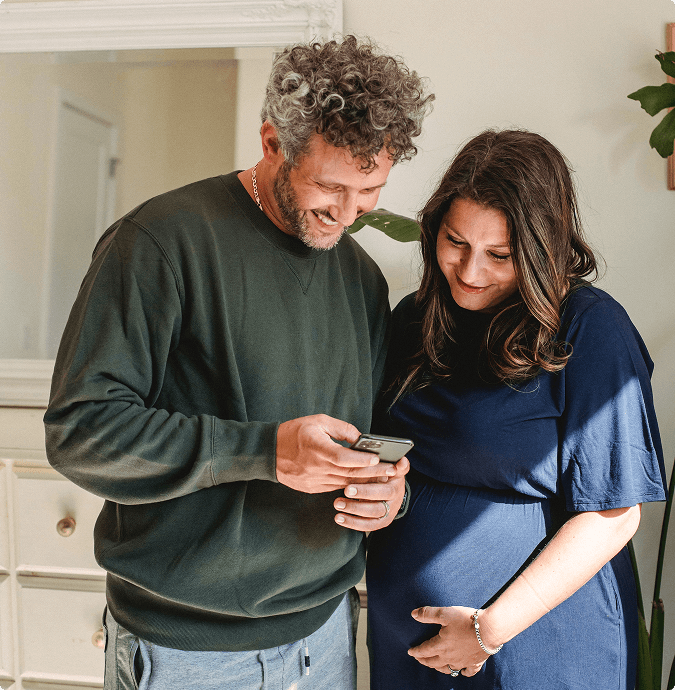Growing up in Catholic school, sex education consisted mostly of nuns warning me about how easy it is to get pregnant. At age thirty-one, I found it impossible to believe my own circumstances: with a healthy, active lifestyle and no history of medical issues, my husband and I had been trying to conceive for two years without success. We started the journey with all of the typical hubris — trying to plan the perfect time to conceive based on our busy calendars. Two years in, we would do anything, go anywhere, and try anything to fulfill our dream of having a child.
My husband preferred to keep our family-building plans private, and we ventured into the multi-year medical odyssey to address “unexplained infertility” without much support and a thin baseline of conception knowledge (again, the nuns).
Unaware of my struggles with infertility, my younger sister and my best friend joyfully announced their pregnancies to me, and I fell into a deeper, darker hole of despondency, feeling more alone than ever. I knew I couldn’t white knuckle it any longer, and needed to open up about our journey and get emotional support.
When I did timidly open up to a small circle, I heard:
- “How often are you having sex?”
- “My friend tried this one thing…”
- “I’m sure as soon as you stop trying, it’ll happen for you.”
Already feeling inadequate about my body’s inability to conceive, I received these questions and comments as the worst kind of confirmation bias: “I’m doing something wrong.” As if I hadn’t already read the clinical literature and tried every old wives’ tale, I followed up on tips and half-baked suggestions, and mustered the courage to hope for a different result each month.
I had a fertility acupuncturist — allegedly the best in town — tell me “you probably think getting pregnant is like going out and buying a BMW, but it’s not.” It has been 8 years since that jerk said that to me and I still wish I could go back in time, get off the treatment table, and tell him I needed to leave to go buy a BMW. Reader, I need you to know that I said nothing and compliantly had the treatment because he was allegedly the best and I was ready to walk over hot coals to see a positive pregnancy test.
I met a new acupuncturist months later who said to me during the intake appointment, “I see how hard you are trying.” Those seven words broke through all of the armor I built up over years. I was seen for the first time. Yes — I was trying very, very hard. Compassion from someone else and compassion for myself came flooding in, and fundamentally changed the course of my journey.
This long and winding journey ends well. With the support of an incredible team of providers, my husband and I became pregnant via IVF and had a healthy baby girl who has given us all of the joy we hoped for and so much more. Over eight years, the journey to grow our family to two children included one IUI, two egg retrievals, three embryo transfers, two miscarriages after IVF, and one very surprising natural pregnancy. Reflecting on the journey, I couldn’t be more grateful for the people who found the right words to meet me in the moment with compassion and empathy.
Science is moving faster than language. As a society, we do not yet have the vernacular for infertility, and our well-intentioned networks need better tools. The Ally’s Guide to Infertility is one small contribution to the larger Maven mission to give every woman and every family personalized, compassionate support—whether it’s clinical counsel from one of amazing providers or helping your family find the words to show how much they care.
And if you are dealing with infertility, I want you to know: I see how hard you are trying.
Ready to get started with Maven?
See how Maven can support working families, retain talent, and reduce costs

Activate your Maven account today
Maven members have unlimited access to 24/7 care and 30+ types of providers. Check to see if you have access to Maven providers and resources today.
Explore Maven





.png)

.png)
.png)
.jpg)
